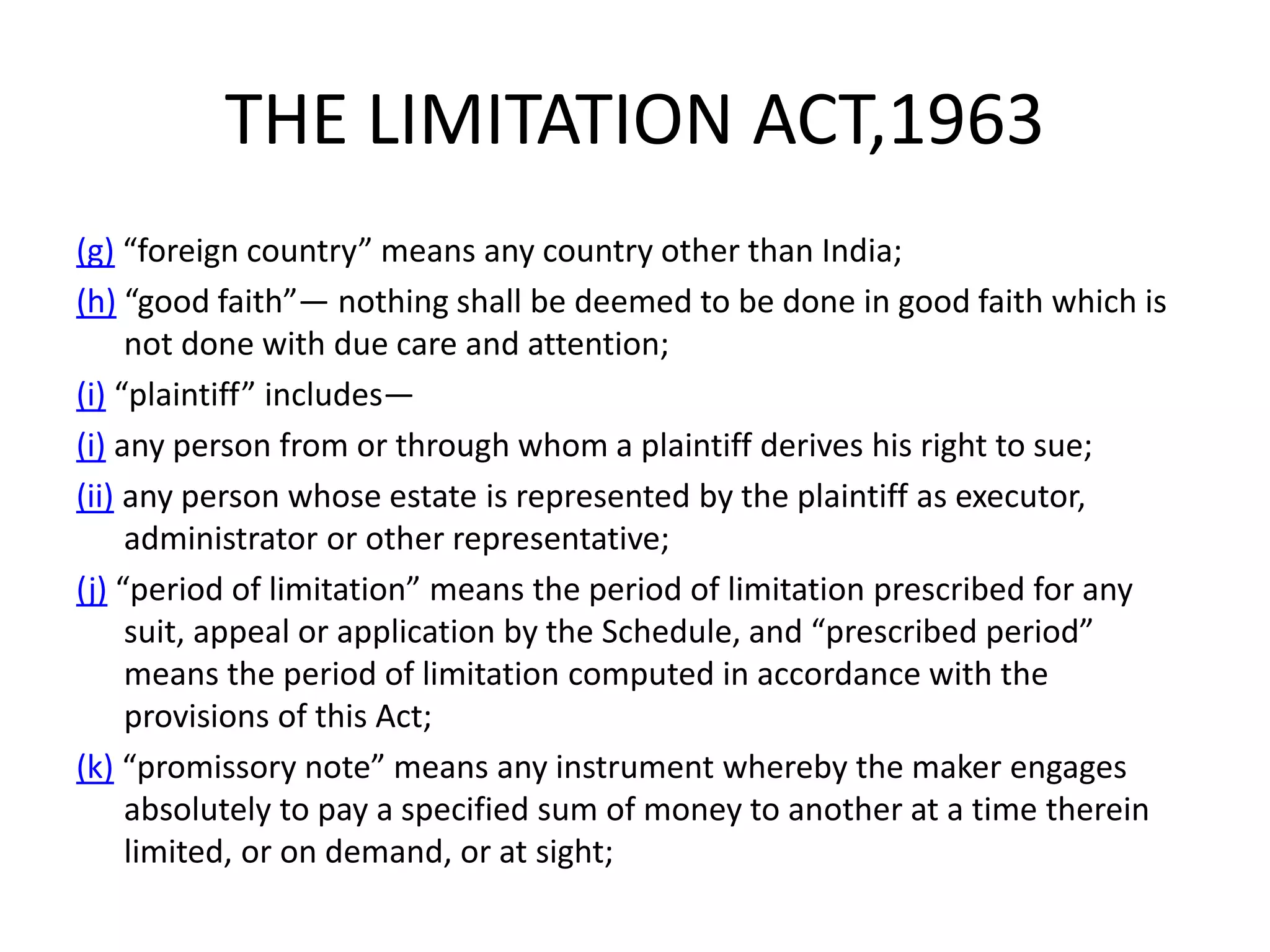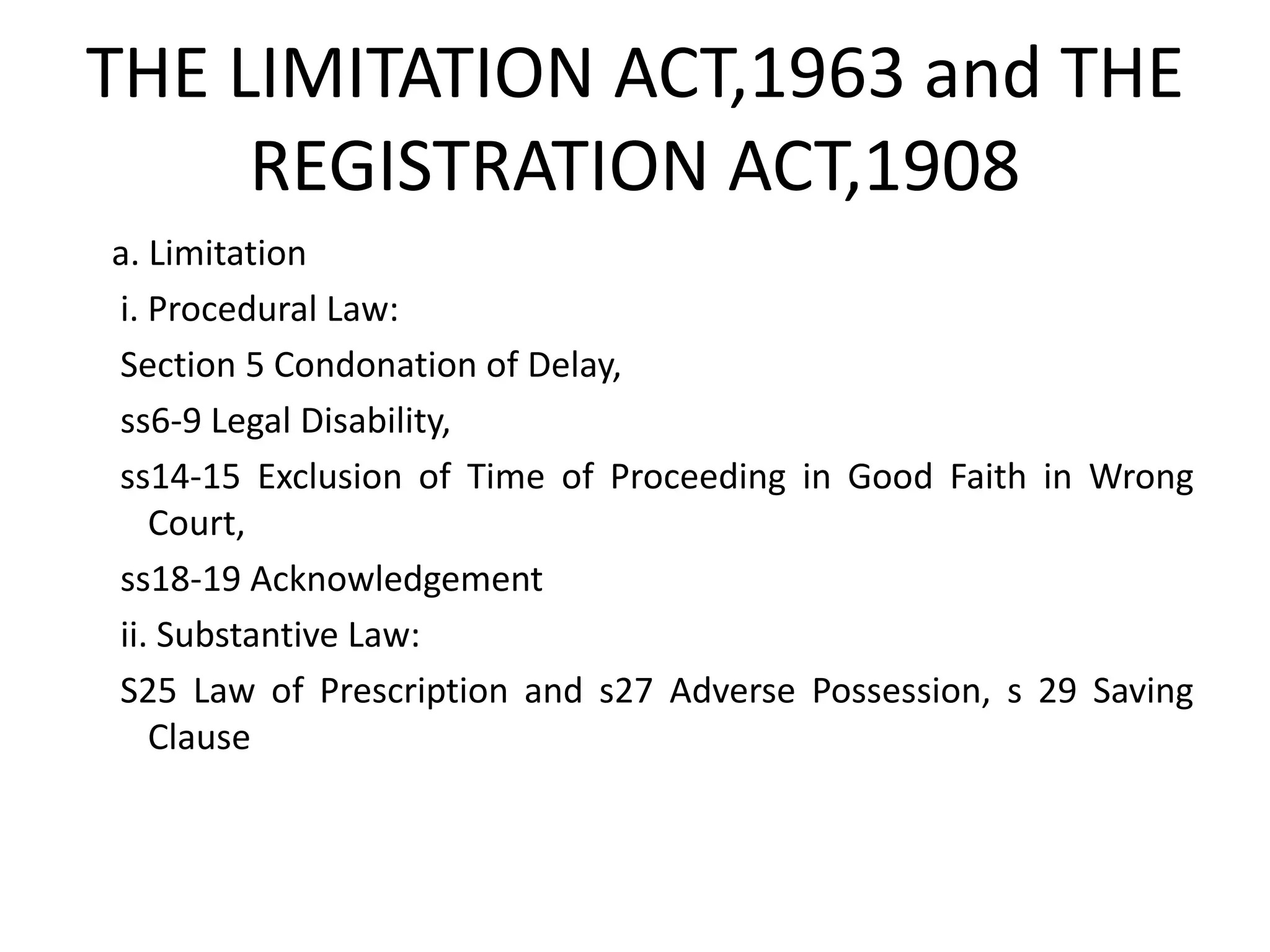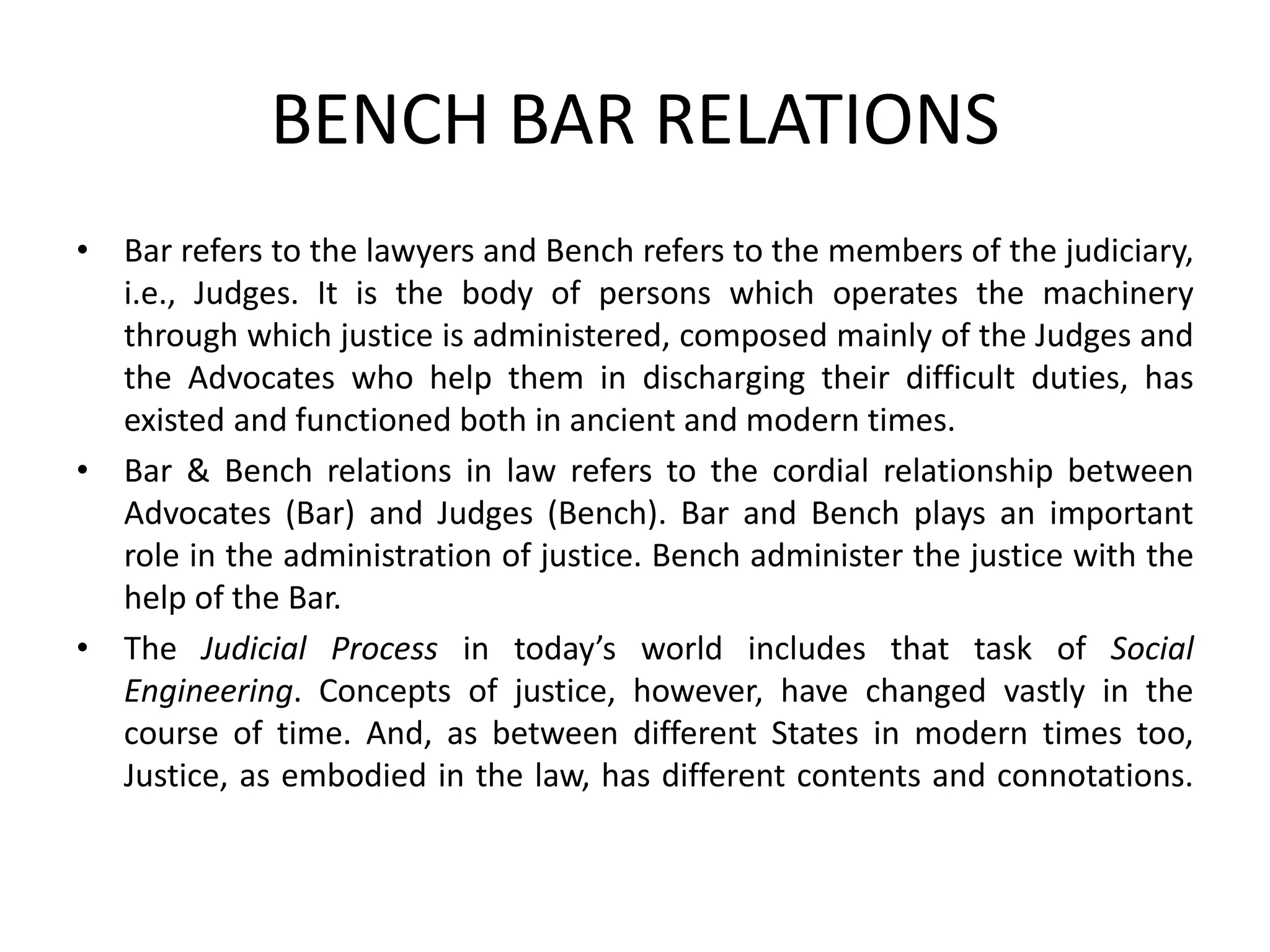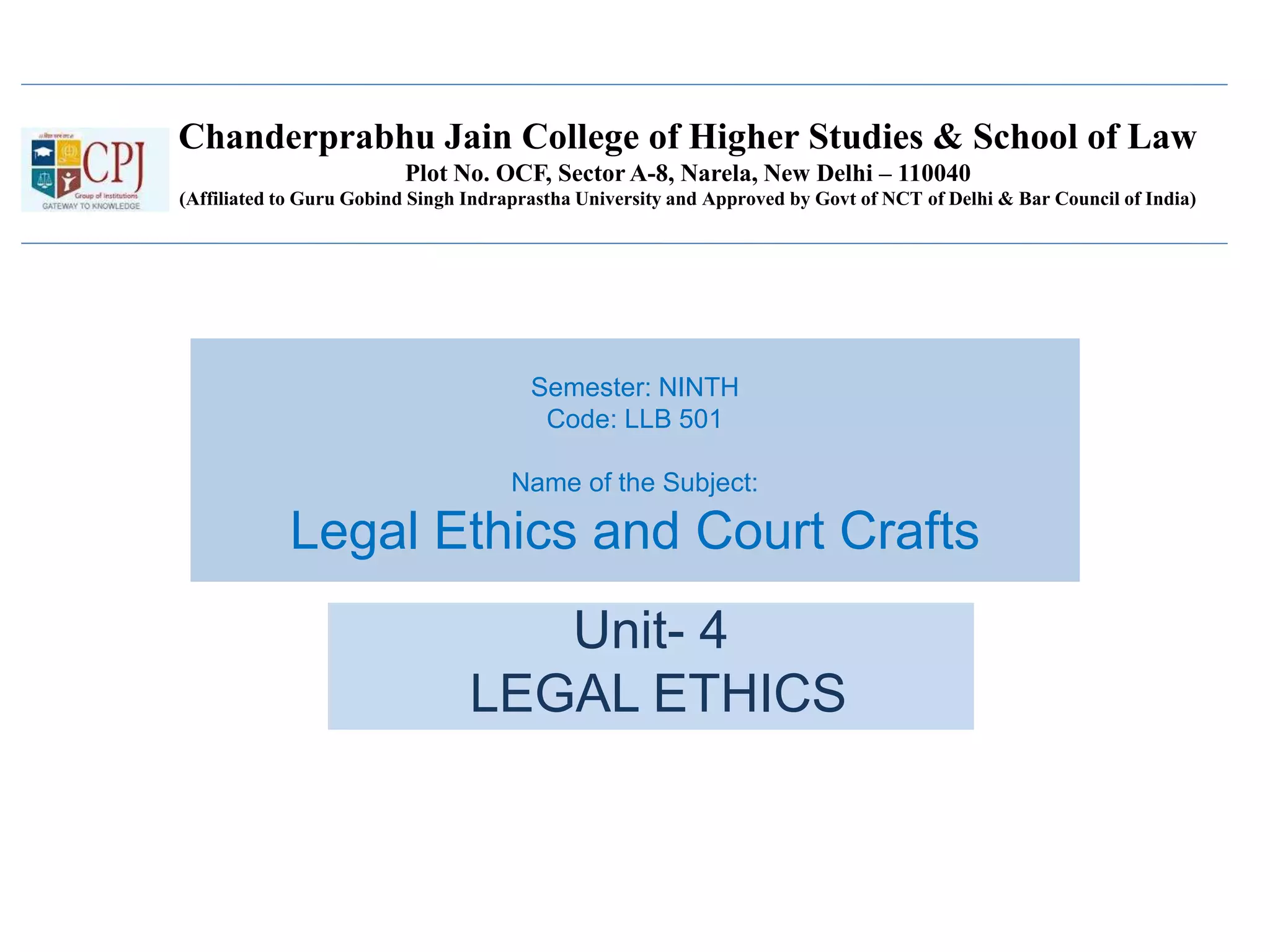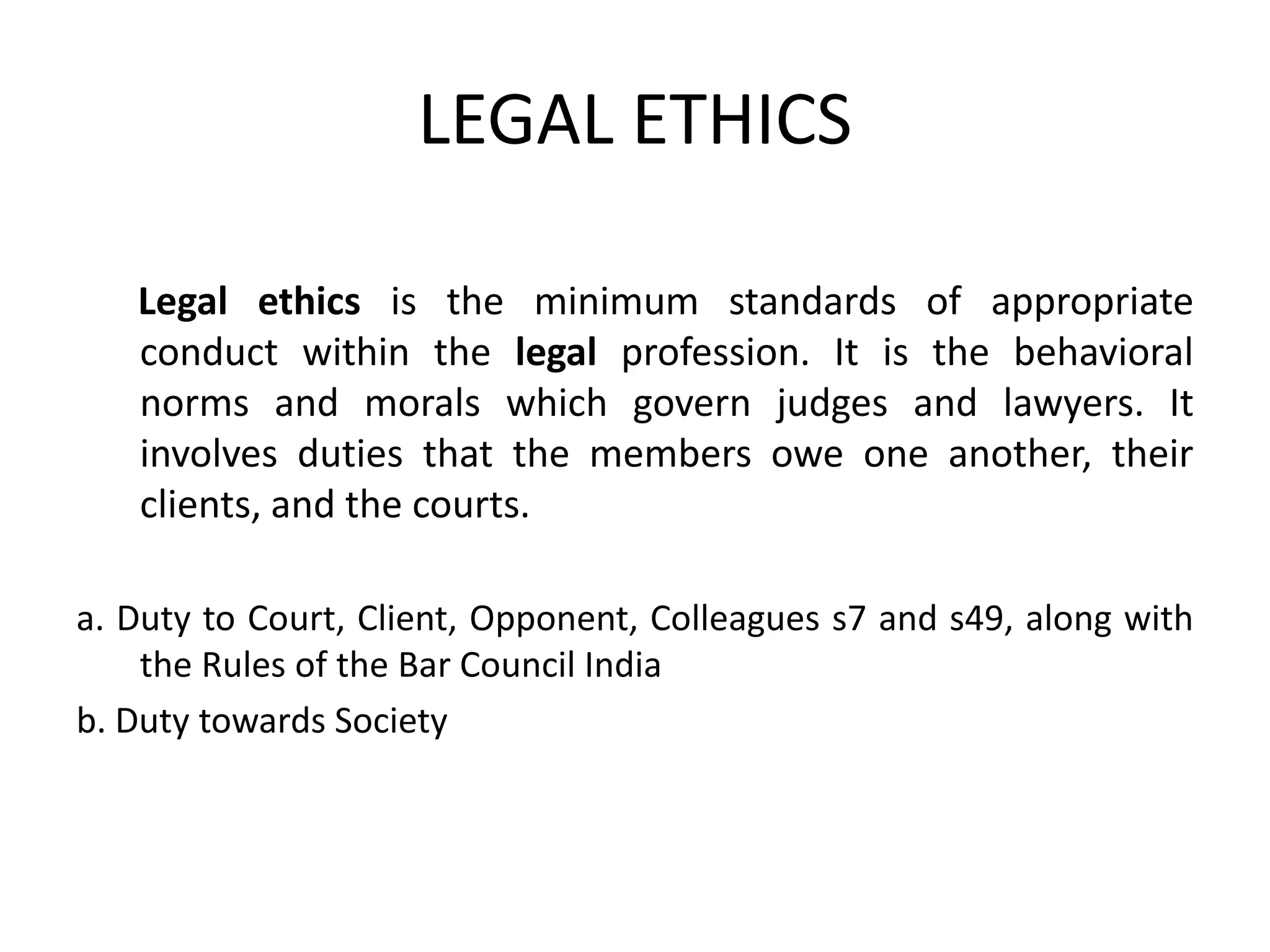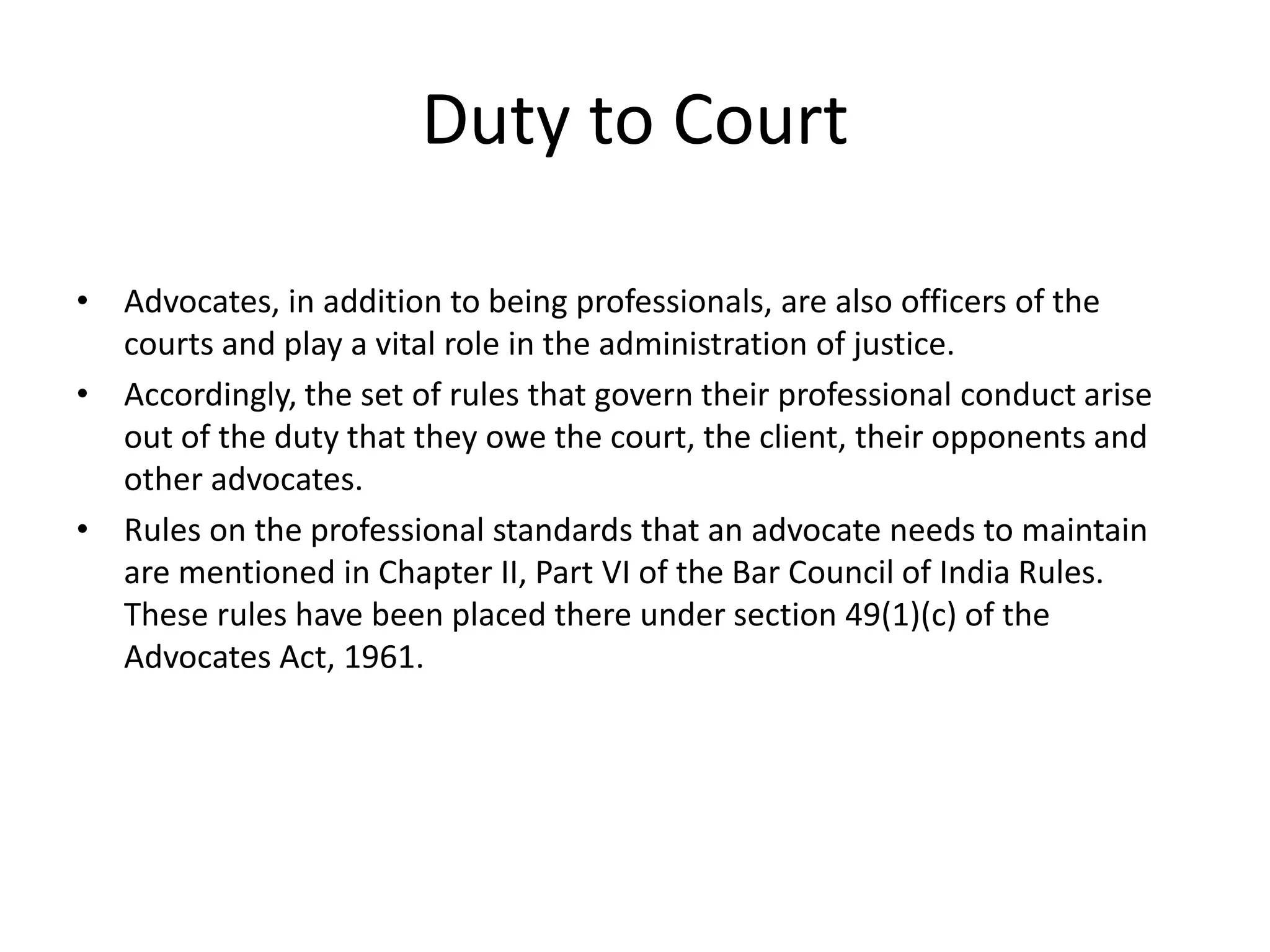The document discusses Supreme Court Rules 1966, Delhi High Court Rules 1967, The Limitation Act 1963, The Registration Act 1908 and Bench-Bar Relations.
It provides an overview of the key provisions of the Supreme Court Rules related to advocates, single judges, writ petitions and election petitions. It also summarizes some key provisions of the Delhi High Court Rules related to advocates, single judges and civil/criminal jurisdiction.
The summary then provides a high-level overview of the main provisions of The Limitation Act and The Registration Act related to limitation periods, legal disability exclusions and effects of registration. It concludes with a brief discussion of the Advocates Act 1961 and roles of the State Bar Council and Bar Council of India regarding
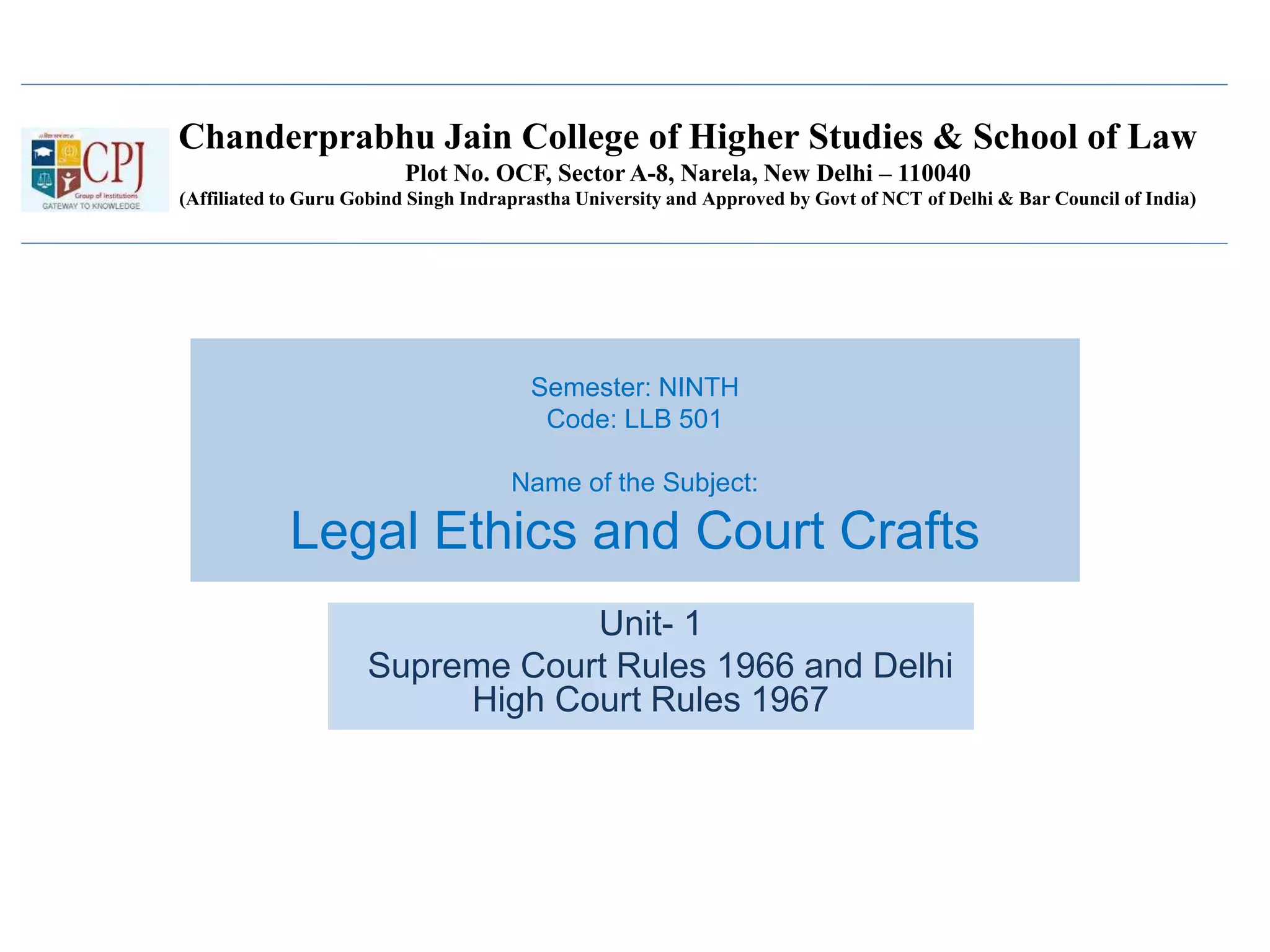
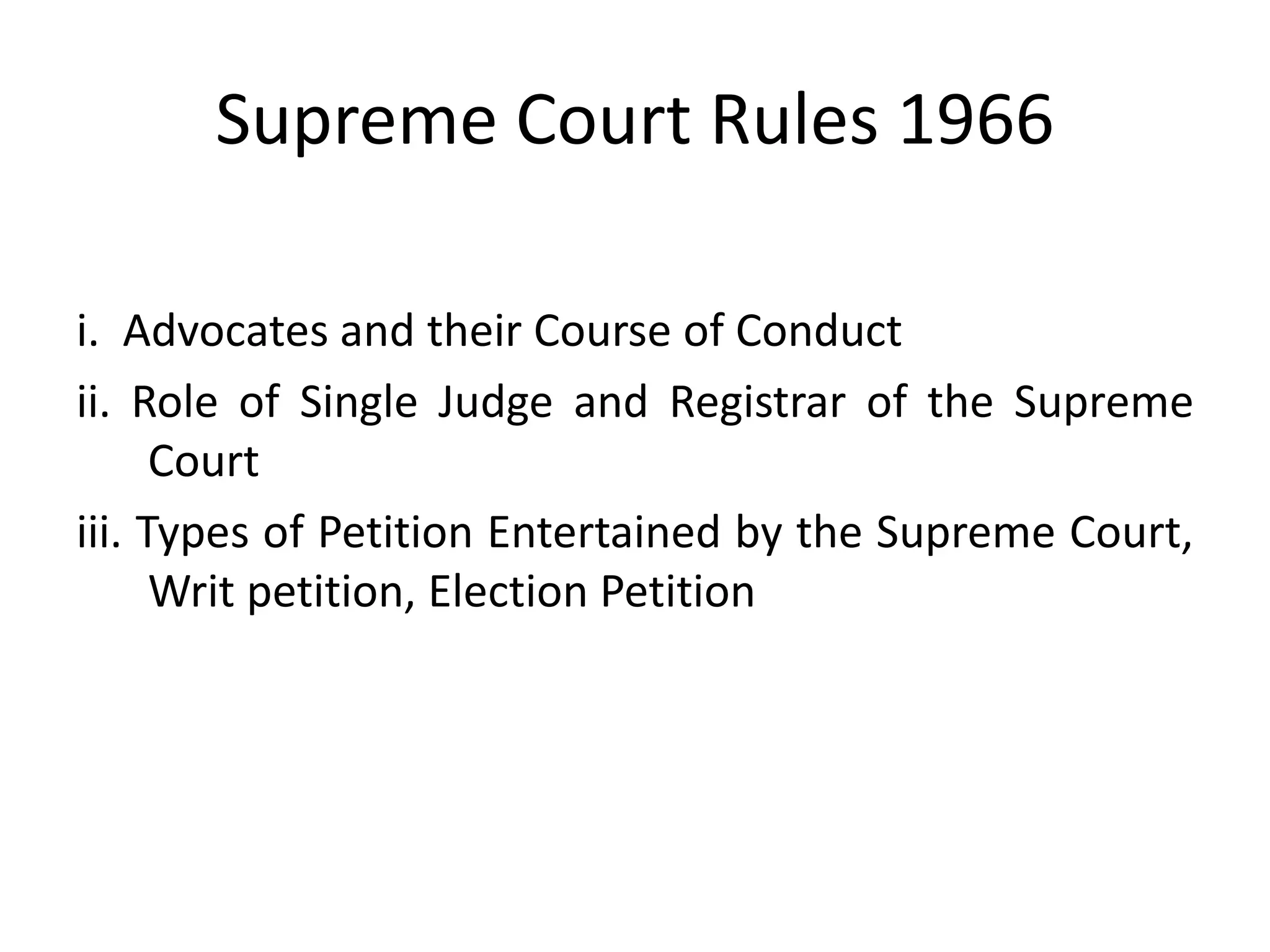


![Supreme Court Rules 1966
2. (1) In these rules, unless the context otherwise
requires –
2 [(a) ‘advocate’ means a person whose name is
entered on the roll of advocates prepared and
maintained by a State Bar Council under the
Advocates Act, 1961 (25 of 1961);]
(b) ‘advocate on record’ means an advocate who is
entitled under these rules to act as well as to plead
for a party in the Court;
(c) ‘appointed day’ means the date on which these
rules shall come into force;](https://image.slidesharecdn.com/ballb501-190111082552/75/Legal-Ethics-and-Court-Crafts-5-2048.jpg)











